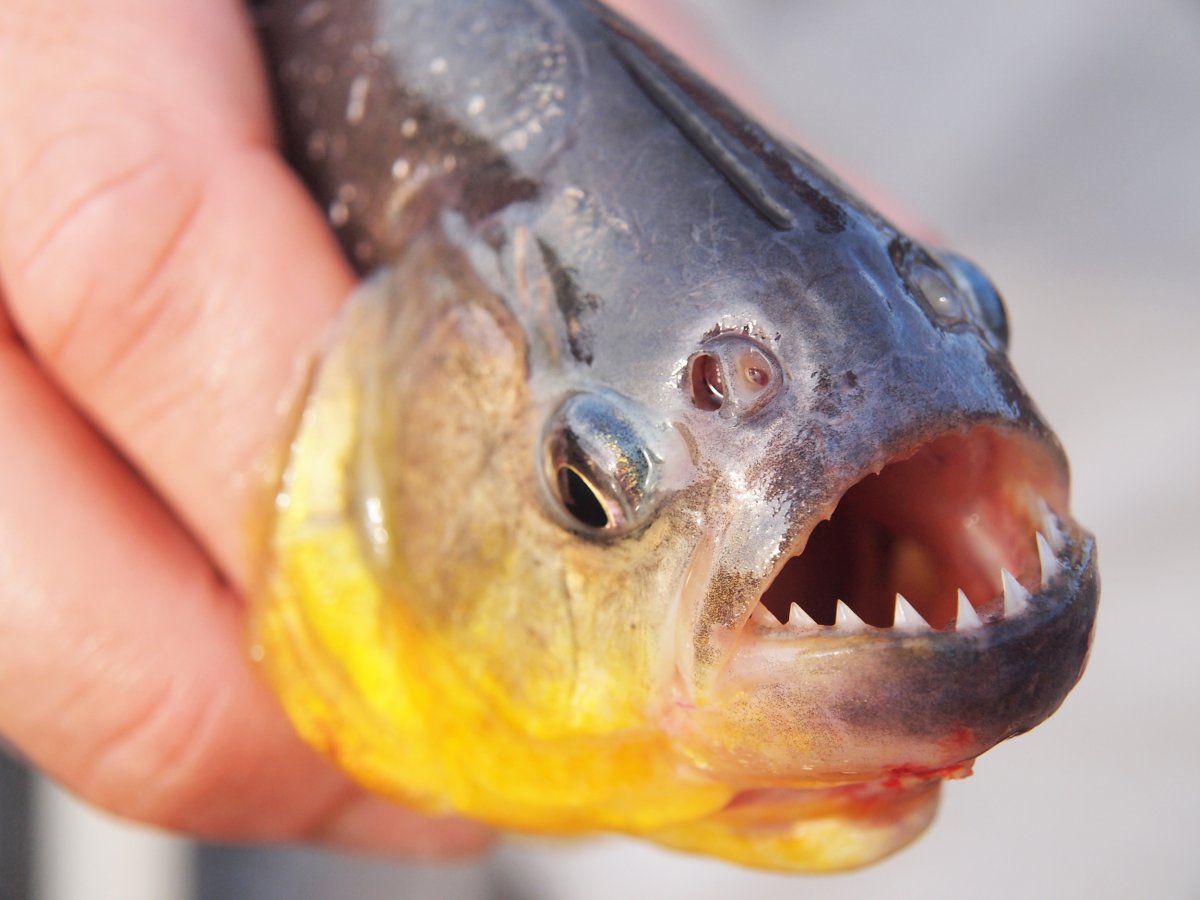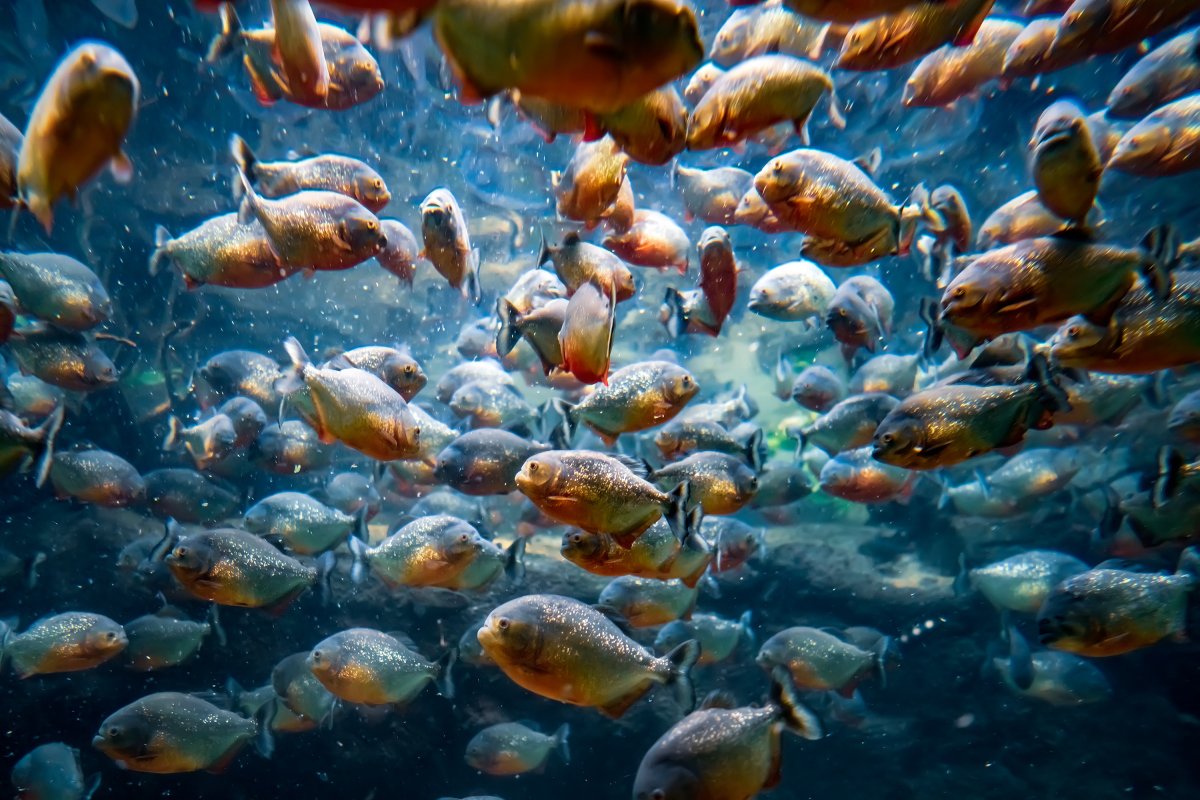Tourists have been attacked by a shoal of vicious piranhas in Brazil, leaving them with bleeding wounds.
Eight people were injured by the fish at the beach resort, located in Tarumã-Açu, near the city of Menaus, on May 1, according to local news portal g1.
"I felt a "shock" on my heel, I even thought it was an electric eel," Adaiany Monteiro, a university student who was one of the attack victims, told g1. "When I left, I saw that some people were talking about piranhas and bites. I noticed my foot and saw the bite mark."

Piranhas are freshwater fish found throughout rivers and floodplains across South America. There are many species of piranha, somewhere between 30 and 60, but the true number is still unknown.
The largest and most notorious species, the red-bellied piranha, can grow to up to 20 inches long. Red-bellied piranhas are renowned for their vicious hunting tactics, swarming their prey with razor-sharp teeth. While they do eat other animals, mainly other fish, piranhas are classed as omnivorous, also consuming plant matter as part of their diet.
These fish do indeed have a powerful bite: one study published in the journal Scientific Reports in 2012 found that black piranhas have a bite force of 72 pounds, three times their own body weight.

Piranhas do occasionally attack humans, but these don't result in the same flesh-ripping swarms as Hollywood movies often portray. Rather, minor injuries are usually the only outcome, and piranhas don't deliberately attack humans as prey.
"Piranhas do not exhibit unprovoked attacks on humans," Steve Huskey, a professor of biology at Western Kentucky University, told Live Science. "The situation described is one of piranhas becoming acclimated to free food and those bites were just another example of mistaken identity, just like shark attacks."
In the first half of 2007, there were 190 reported piranha attacks in an artificial lake near the city of Palmas in Brazil, all of which were single bites to the feet.
Some deaths have occurred as a result of piranha attacks, however, including an 18-year-old in 2011 who died in Rosario del Yata, Bolivia, and a six-year-old girl who died in February 2015 in Brazil when the piranhas ate all the flesh from her legs.
The victims of the May 1 attack thankfully only received minor injuries. People suffering from piranha wounds are advised to leave the water immediately and seek medical attention.
"The first course of action when being attacked is to get out of the water and try to signal the accident as quickly as possible so that other people don't get hurt," Romes Proença, a doctor from the Mobile Emergency Care Service, told g1.
"[Do not use] detergent, merthiolate [a type of antiseptic], toothpaste or any other product," Proença added. "You can compress the area with gauze, a towel or a clean cloth to avoid bleeding and take it to the health unit as soon as possible. Not seeking assistance increases the risk of tetanus and infection."
Do you have an animal or nature story to share with Newsweek? Do you have a question about piranhas ? Let us know via science@newsweek.com.
Uncommon Knowledge
Newsweek is committed to challenging conventional wisdom and finding connections in the search for common ground.
Newsweek is committed to challenging conventional wisdom and finding connections in the search for common ground.
About the writer
Jess Thomson is a Newsweek Science Reporter based in London UK. Her focus is reporting on science, technology and healthcare. ... Read more
To read how Newsweek uses AI as a newsroom tool, Click here.






